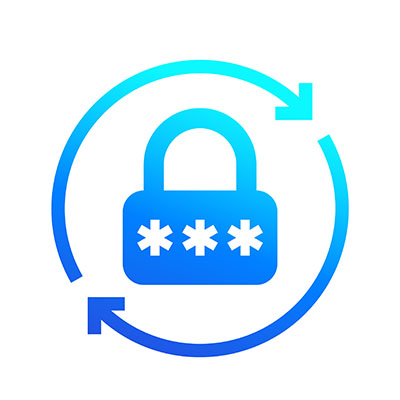Protecting personal data has become a critical concern as more and more people use Internet-connected accounts. While this tech has undoubtedly enriched our lives, it has also paved the way for unprecedented invasions of privacy, particularly by enormous technology companies that claim to be doing it for their own good. Today, we will explore how these giants compromise data privacy, raising questions about the balance between innovation and safeguarding our most sensitive information.
Even though passwords are not the most reliable security measure out there these days, they are still important and the first line of defense against potential threats. Today, we want to discuss how you can make better passwords for all of your accounts.
Information technology, or IT, is an indispensable component for most contemporary businesses and serves as the backbone of their operations. To ensure a smooth operational infrastructure, it is crucial that businesses manage their IT in the most effective manner possible. One such way businesses can do this is through working with a managed service provider, or MSP. These types of arrangements can provide businesses with clarity and ease of mind as it pertains to IT and operations.
As a business owner, you know the importance of protecting your company from potential risks and liabilities. That’s why you have business insurance to safeguard your assets and mitigate potential losses. But what happens when your insurance provider starts asking about your cybersecurity measures? In today’s digital age, cyberthreats are a growing concern for businesses of all sizes. According to a report by the Ponemon Institute, the average cost of a data breach for a company is $3.86 million. This is why insurance companies are now taking a closer look at a business’ cybersecurity measures before providing coverage. In this article, we’ll explore why your insurance provider is asking about your cybersecurity and what you can do to ensure you have the necessary measures in place.
Have you ever tried to introduce new technology to your team, only to have your efforts at improving your business’ efficiency bounce off of your apathetic and frustrated employees who just don’t see the benefits? You’re not alone; it’s difficult to teach old dogs new tricks, as they say. Granted, it’s not impossible, and your team can (and should) be able to get on board with any new implementations, provided you do some initial legwork.
Do you know what a digital twin is? While it might be considered a relatively recent innovation, it’s still helpful for businesses that want to improve their workflows. Today, we want to define what digital twins are and what value a business might get from them.
Are you a business owner in Manhattan looking for a reliable and efficient managed IT services provider? With the ever-evolving technology landscape, keeping up with the latest IT trends while managing and maintaining your IT infrastructure can be challenging. That’s where a managed IT provider comes in. A managed IT services provider can handle all your IT needs, from network security to data backup and recovery, allowing you to focus on your core business. But with so many options available, how do you choose the right managed IT services provider for your business? In this article, we’ll discuss the key factors to consider when selecting a provider in Manhattan.
Your IT team plays a crucially important part in your business machinations. However, many small and even medium-sized businesses may not have the in-house resources to effectively cover their needs. If this could easily describe your business, you might want to consider outsourcing some of your technology management needs to a managed service provider.
Network security is an incredibly nuanced topic with a lot of specifics that must be addressed. Still, today, we want to give you some actionable items that you can use to take an active role in improving network security for your business. Let’s dig into some of the essential dos and don’ts of network security for small businesses.
A single oversight can potentially nullify the effectiveness of your cybersecurity measures. For instance, even if you’ve implemented security measures like multifactor authentication, a phishing scam or certain malware variants could grant unauthorized access to your email, compromising all the data stored in your inbox.










